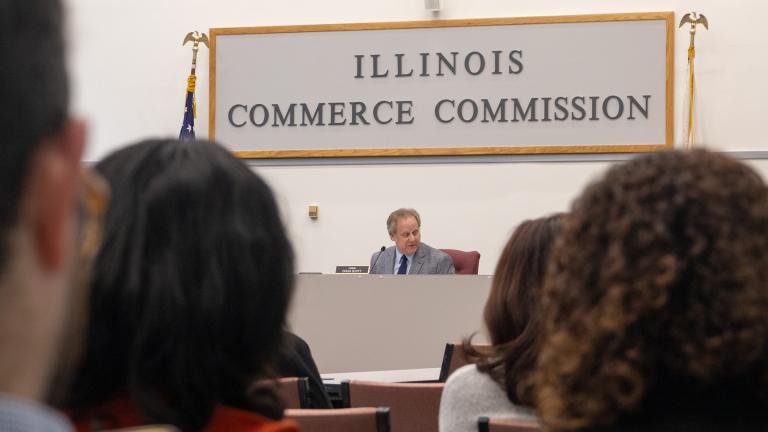World leaders, though notably not China’s President Xi Jinping or Russia’s Vladimir Putin, are meeting in Scotland to discuss how to avert a global climate catastrophe.
The COP26 meeting is being billed as humanity’s last chance to tackle climate change before it is too late.
“We’re standing at an inflection point in world history,” President Joe Biden told the assembly of leaders on Monday. “We have the ability to invest in ourselves and build an equitable clean energy future and in the process create millions of good paying jobs around the world, cleaner air for our children, more bountiful oceans and healthier forests and ecosystems for our planet.”
Last month the $8.2 billion MacArthur Foundation announced its decision to divest from fossil fuels.
In a statement announcing the decision, MacArthur President John Palfrey called climate change “likely the greatest existential threat to our planet and collective well-being.
“The climate crisis affects everyone in the world, but not equally,” said Palfrey in a statement. “From wildfires that consume precious forests and rip through communities; to super-storms that inundate homes with floodwaters and ravage infrastructure; and water shortages and droughts that destroy crops and livelihoods—we see the ways in which some communities, many already marginalized, are suffering more from the ravages of climate change than others.”
Palfrey said that in line with the foundation’s goal of creating a “more just, verdant, and peaceful world.... we are committing to greater alignment between our endowment investments and our programmatic goals, mission, and values…. We are on a path to divesting from fossil fuels.”
Earlier this month, Loyola University Chicago announced it too would divest from fossil fuels.
But making the announcement is one thing, implementation is quite another.
Katharine Wyatt, chief investment officer at the Loyola University Chicago, oversees assets of around $1.5 billion. Wyatt says that identifying and unwinding fossil fuel investments can be a complex and lengthy process.
“We’ve committed to divesting directly held securities,” Wyatt said. “So anything that is in accounts that are held by Loyola specifically, we are going to be exiting those investments…. And we’ve committed to exiting funds that have a specific mandate towards fossil fuels. So we have in some cases exited the entire fund.”
Loyola is also working to wind down potentially problematic private investment partnerships “in accordance with the terms of the partnership agreements,” said Wyatt.
At the University of Wisconsin-Madison, law professor Steph Tai has been pushing for years to get the university and its foundation to also divest from fossil fuels. In March, university faculty passed a resolution calling on the University of Wisconsin Foundation to disclose its fossil fuel holdings and create a plan to withdraw from those investments.
But faculty also went further with their demands.
“Our divestment resolution is unusual in that it also includes procurement,” said Tai. “Some of the critics of the divestment effort say it is just one part of the puzzle, and our focus has been on both divestment transparency and also procurement.”
The University of Wisconsin has already established a sustainable purchasing working group to try to identify and calculate the environmental impact of the university’s purchases, but Tai says that the University of Wisconsin Foundation “is still not working with us.”
Tai, who was previously an appellate attorney in the environmental and natural resources division of the U.S. Department of Justice, notes that analysts and investors are now beginning to assess the risk of maintaining fossil fuel investments due to liability concerns. Just last week, major oil company chief executives were accused of lying about what they knew about the impact of burning fossil fuels on the environment at a congressional hearing.
U.S. Rep. Carolyn Maloney of New York likened the CEOs’ responses to those of the tobacco industry.
“There’s (now) a lot more support for divestment as good risk management,” said Tai. “It’s actually riskier to stay invested in fossil fuels.”








